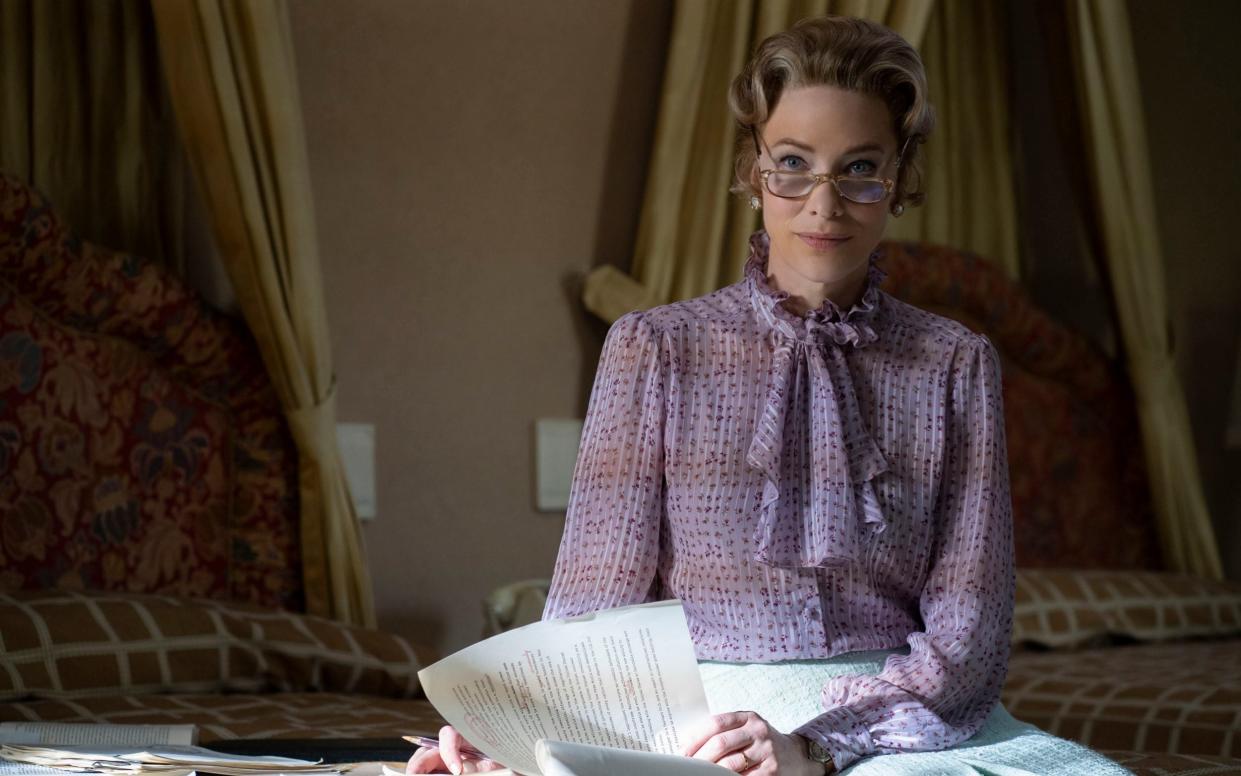Mrs America, episodes 1 and 2, review: Cate Blanchett's culture wars drama is admirable but distant

Critics across the pond have raved about Mrs America (BBC Two), which stars Cate Blanchett and may as well be called For Your Consideration, Emmy Voters, but it left me cold. Which is not to say that it isn’t good – it’s skilfully written, impeccably acted and the soundtrack is a dream. But the idea of spending nine episodes immersed in the fight to ratify the Equal Rights Amendment in the 1970s doesn’t fill me with excitement, even with Rose Byrne as Gloria Steinem and, wonderfully, Tracey Ullman as Betty Friedan.
Perhaps it’s because we’ve got culture wars coming out of our ears – I wouldn’t want to sit through a nine-hour series about a global pandemic either. I can, though, admire Blanchett’s performance. She plays Phyllis Schlafly, a conservative activist who took on the feminist movement and led the campaign to stop the ERA in its tracks with her band of Republican housewives. Opponents dismissed her as “a right-wing nut from Illinois” but Schlafly was a shrewd political operator.
If looks could kill, Blanchett’s Schlafly could slay all her enemies with a tight smile. Show creator Dahvi Waller (previously of Mad Men, a show to which Blanchett’s beautiful costumes owe a debt) gives us all of Schlafly’s contradictions: a housewives’ leader and a full-time working mother; a clever, ambitious character happy to parade in a bikini at a beauty contest as “Mrs J Fred Schlafly”. She is twice the politician of most men she meets, yet they treat her like the secretary at meetings, asking her to take notes. At home she has little power when her husband demands conjugal rights.

Schlafly doesn’t even care much about equal rights, but is savvy enough to spot that this could be her ticket to Washington. The first episode is focused on her, the second on Steinem, and subsequent ones on other players. It feels too sprawling, and the characters too distant – it’s fun to spot the real-life icons in a sort of Feminist Avengers: Assemble, but we are never allowed to forget that this is Important History. The only character who cuts through emotionally is Schlafly’s muted sister-in-law, Eleanor (Jeanne Tripplehorn).
As Schlafly sows disinformation and warns that “a small, elitist group of Establishment liberals” is dominating the political landscape, the message is rammed home. This is a period drama, but very much of the present.

